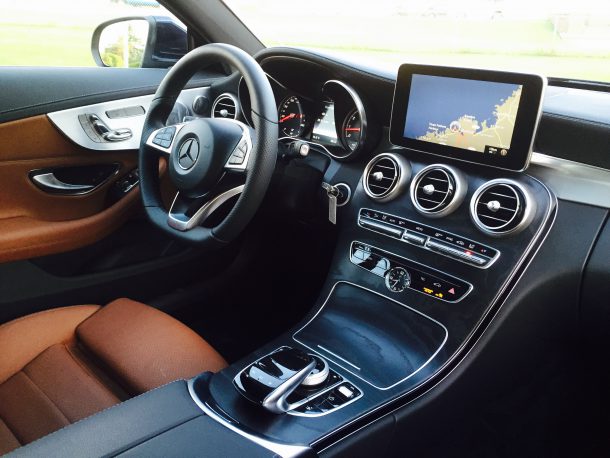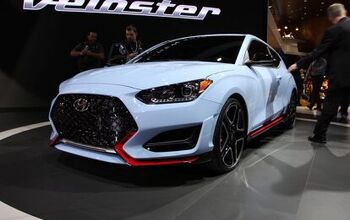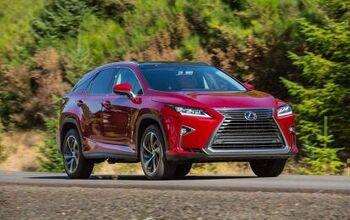QOTD: Does Luxury Matter Anymore?

Gather round, gather round.
You probably know of a friend who’s just tickled pink over their recent vehicle purchase, someone who likely spends too much time describing in awed tones just how nifty, neat-o and awesome their luxury crossover’s standard equipment is. It does this, and this, and they’ll never accidentally back over a neighbor’s kid again, or spend all day shoulder checking before a lane change.
Meanwhile, you’re gently nodding, wondering where squirrels sleep or how birds turn in unison, because you’ve got the same tech in your midsize domestic car. You could have dropped even less cash on a compact with the same convenience and safety aids.
Technology once reserved for high-end models has trickled down into plebeian rides, making it commonplace, affordable, and thus mundane. So, does “luxury” really matter anymore?
Gone are the days when the latest in stereo technology (with tape deck!) and front-wheel anti-lock brakes were only found in Baroque personal luxury barges stuffed with velour, topped with vinyl, and cushioned by 15-inch whitewalls.
A quick spin in a modern-day Ford Fusion, Hyundai Sonata or Chevrolet Malibu would have that wide-lapelled owner thinking man had populated the moon and continued on to Mars. Take away the time machine, and any potential Mercedes-Benz CLA buyer could find the equipment they’re looking for in almost any compact car, while paying far less. Why is the luxury field, and all of its “premium” offerings, still a viable segment?
This really begs the question, “What is luxury?”
I’ll bite and offer up my opinion that luxury goes beyond content. It’s more than technology (though some of the real gee-whiz gizmos can only be found on the highest automotive shelf). It’s a matter of panache, it should be a matter of quality (money, of course, doesn’t always buy sturdiness), and status.
There’s room for luxury automakers in this world, but only if they don’t phone it in. The roundel badge or tri-star needs to mean something beyond decades of heritage and hard-won consumer trust. A luxury vehicle needs to make the owner feel special, all the time, and not let down after riding in a friend’s sedan that cost $40,000 less.
People can blow their dough on whatever they please, but I’m of the mind that extra money should warrant something extra special. More silence, more comfort, more attention to quality, to materials, to the little things that could be overlooked. Luxury needs to be felt, because it’s no longer a checklist of the latest gadgets.

More by Steph Willems
Latest Car Reviews
Read moreLatest Product Reviews
Read moreRecent Comments
- SCE to AUX Figure 160 miles EPA if it came here, minus the usual deductions.It would be a dud in the US market.
- Analoggrotto EV9 sales are rivalling the Grand Highlander's and this is a super high eATP vehicle with awesome MSRPs. Toyota will need to do more than compete with a brand who has major equity and support from the automotive journalism community. The 3 row game belongs to HMC with the Telluride commanding major marketshare leaps this year even in it's 5th hallowed year of ultra competitive sales.
- Analoggrotto Probably drives better than Cprescott
- Doug brockman I havent tried the Honda but my 2023 RAV4 is great. I had a model 20 years ago which. Was way too little
- Master Baiter The picture is of a hydrogen fuel cell vehicle.


































Comments
Join the conversation
According to the old Mercedes-Benz formula, luxury is durability and never taking the cheap way out with an engineering decision. Note: not *reliability* but durability. It may cost a mint in maintenance to keep in service, but as long as you maintain it, the car will serve you forever. A seat made of horsehair and springs and upholstered in MB-Tex will look and feel much the same at mile 400,000 as at mile 1, whereas a seat made of foam and bonded leather will long since have caved and cracked. A dashboard and door panels made with materials and attachment methods designed for the long term will give silent, solid service years after ones designed for fastest possible assembly time have collapsed into a cacaphony of squeaks, rattles and delaminations. Things that look like polished metal should in fact be made of polished metal, not plastic with a chrome finish plastic that will wear and weather away. This is why back in the 1980s rich Americans literally used to buy a German taxi-spec Mercedes-Benz 240 D, complete with asthmatic naturally aspirated diesel and clunky 4-speed manual transmission, at a price that would have bought them more than one Ford LTD. The car registered as a status symbol to those who knew quality; like a fine watch, you knew you could hand it down in perfect working condition for generations. (Pretty sure Junior would have preferred a 320i or a 944 though.)
While there are still badge-w***** who will buy/lease the cheapest luxury branded auto they can get just to get the badge, increasingly, consumers are moving to purchasing loaded or near-loaded autos with all the latest tech (including safety tech). Which is what many buyers are ending up with well equipped mass-market branded crossovers (or premium brands like Buick and GMC). It's the reason why Kia launched the SX-L trim; many buyers wanted something even nicer than the SX trim (better leather, etc.).